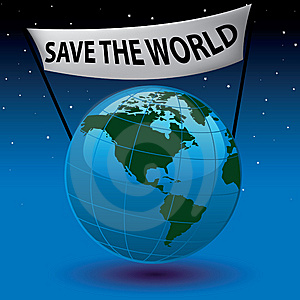Outline of problems of the world, where we are with them and how microorganisms may help.
As much as humans believe they can do anything, and essentially effect total control over the world, the biosphere and our planet, we have a major global pandemic put everything into perspective for us. This demonstrates how the unseen can exert near total control, how an entity that doesn’t even satisfy the criteria to be classified as a form of life, can wreak catastrophic havoc. However, the microbial world must not be seen as evil, for it is the delicate balance in our biosphere, driven by microorganisms that has not only brought stability our world for billions of years, but gradually allowed a myriad of lifeforms to evolve and flourish. Despite the resilience of the microbial-stabilised biosphere, our planet must not be taken for granted. We have assumed the role as the current custodians of our planet and are privileged with the responsibility of ensuring it remains habitable, not just for our species, but for as many species’ as possible. This requires an acknowledgement of the key role of microorganisms in this aspect, through their fundamental contribution to energy and nutrient cycling along with their base position in many food webs, especially those in aquatic biomes, which cover around three quarters of our planet. The absolute fundamental contribution of microorganisms to sustainable agriculture and hence food production and food security through stabilisation of climatic deterioration and biospheric harmony not only requires acknowledgement, but action. We can do this, we are all in this together, what we must all do our part to keep this world habitable, then to improve our planet and ultimately, to ensure the longevity of our planet in the face of mounting challenges. The answers to do all this lie with microorganisms, from a multitude of perspectives – newly developed probiotic and/or fermented manufactured foods, regenerative agriculture, restriction of antibiotic use in livestock, to name some of the ways that microorganisms can contribute to widespread improvements in our world.
Society appears to have reached the stage where traditional scientific approaches may not be able to sustain humanity into the future. Not only does technology need to continue progressing, but so do people’s mindsets and attitudes. These are key to furthering society as in many instances throughout history, advances have been limited by resistance from consumers, the general public, who have staunch beliefs and attachments to their traditions and what they are familiar with. However, the general public must move past this, because these technologies of the future (and even technologies of the past, that have met with untold resistance) are needed to advance humanity, in fact, putting it simply, for society to have a chance of addressing the immense global challenges in the space of agriculture and food, policy makers will need to be able to select from any (safe) technology that is available. Two that come to mind are food irradiation for food preservation and recombinant DNA technology for development of crops able to better provide food for the continued boom in population growth expected over the coming decades. Both of these, are in some form, associated with microbiology.
What are the big problems of the world? Furthermore, can we predict what might be global or significant regional challenges that we haven’t encountered yet? Perhaps not. Look at the ongoing impact of COVID-19. In the late 2000s, Barclay (2008) provided insights into attempts to predict future pandemics. Not long after that, yet another influenza pandemic swept the world and then, 10 years on from that pandemic, SARS-CoV-2 emerged. It is easy to say that humanity is at the mercy of infectious disease, but even if the science was equal to the task, there are complex social and political considerations at play, many of which stem from traditions, attachments and the generally strong mindsets and attitudes that are not easy to shift. A way to address this, is perhaps, two-pronged. Involvement of the general community in so-called ‘citizen science’ projects along with sustained consumer awareness campaigns carried out in parallel.
There’s no doubt food in general is at the cornerstone of humanity’s issues. Whether this be food security, improving yield, reducing spoilage and food waste, farming marginal lands or combating foodborne disease, these are all major contemporary issues. If any of these could be successfully addressed, just one, it would be a miraculous achievement for humanity. They do present seemingly insurmountable hurdles to society, but there are answers, science really has the potential to answer them and especially so microbiology. How can this be? Furthermore, is it really that easy and how can we be sure that microbiology has the answers? Of course we cannot, but the microbial world has provided, has had many solutions to humanity, over millennia. There have been profound solutions, solutions to problems that have changed the course of humanity – take antibiotics. Solutions so significant that they are still practiced to this day, under the same that they were thousands of years ago, for example fermented food products. Microbiology, and the answers it has given and revolutions it has helped develop are amongst the most significant over the entire course of human history. Therefore, the secrets of the microbial world are just waiting to be unlocked, explored and from there, we may just discover many tools that will save humanity, solve the challenges of the world and perhaps, again, change the course of humanity.
Reference
Barclay, E., 2008. Predicting the next pandemic. The Lancet 372:1025-1026. https://doi.org/10.1016/S0140-6736(08)61425-7

